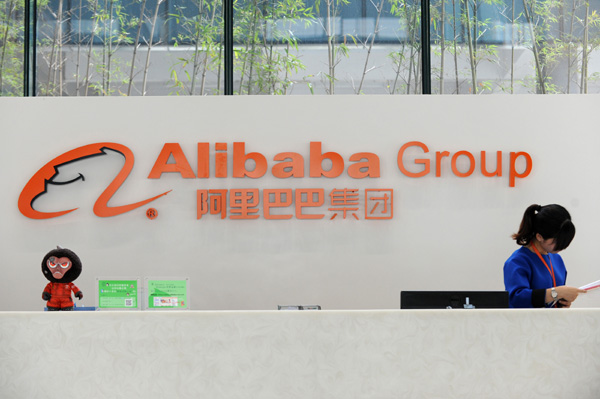Business giants tap rural e-commerce market
(Xinhua) Updated: 2015-04-23 09:30
 |
|
A receptionist works at Alibaba's headquarters in Hangzhou, capital of East China's Zhejiang province, in this Jan 30, 2015. [Photo/Xinhua] |
E-commerce giant Alibaba Group signed an "Internet plus rural area" agreement on Tuesday with the Commerce Department of the central province of Henan to implement a plan to develop rural e-commerce.
Alibaba chose Mengzhou city in Henan as its pilot project to build county and village-level service centers or stations for developing rural e-commerce. The project will cover 15 to 20 county-level areas by the end of this year.
Henan, which promises a vast market with its population of 100 million, is one of seven provinces where Alibaba plans to launch rural e-commerce projects this year.
China is promoting large-scale farming via transfer of management rights of rural land and development of new agricultural businesses. The reform has made the agricultural sector more attractive to industrial and commercial capital.
E-commerce not only provides rural residents much easier access to industrial products, but has also become an important channel for the sale of agricultural produce.
"The golden era of investment in agriculture has come," said Chen Shaopeng, senior vice president of Legend Holdings Ltd., at the Annual Summit of China Green Companies, held in Shenyang, capital of Liaoning province in northeast China. The summit, which brought together domestic entrepreneurs, aims to promote sustainable economic growth.
In 2012, Legend Holdings, parent company of Lenovo Group, China's leading personal computer maker, founded the subsidiary Joyvio Group for modern agriculture investment and business.
In March, Legend Holdings invested in an online agricultural materials trading platform following its strategic investment in a rural-oriented peer-to-peer (P2P) lending platform at the end of last year.
With its own quality control measures, the company can guarantee the safety and price of products, said Zhao.
- Chinese lawmakers protect retail investors
- Belt and Road Initiative facilitates more opening-up
- China to become world's biggest aviation market in 2030
- China's tolerance for small SOE defaults to rise
- Vice Premier vows to further develop FTZs in China
- China's ODI to maintain double-digit growth
- Lenovo recalls defective laptop batteries
- Port sails into a brighter future

















